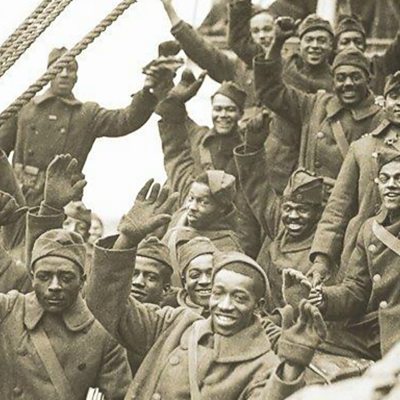Episode details

Available for over a year
Jonathan Dimbleby presents a public debate from the US Library of Congress in Washington, to discuss the relevance and legacy of World War One for the United States, in association with the British Council. On 1 May 1915, one century ago, the British ocean liner Lusitania set sail from New York to Liverpool. She never arrived. In an event which was to have massive consequences, a German U-boat torpedoed the Lusitania on 7 May off the southern coast of Ireland. She sank in less than 20 minutes, with the loss of 1198 lives. The death toll was 128 Americans, and their deaths caused a storm of protest which was a crucial turning point in American public and political opinion about World War One. This event scorched itself on the American consciousness and was constantly reiterated by those, like Teddy Roosevelt, who were determined that America would enter the war against Germany. In 1917 America mobilised two million men to fight in Europe, shifting the balance of power and leading to the defeat of Germany and the central powers. This was the first time America had entered into a European war, overthrowing the so-called 'Monroe Doctrine' that it should never become entangled in European affairs. How did World War One change America's place in the world? And what did this demonstration of American power do to the debate about the United States of America's restraint in World Affairs? We are joined by historians Jennifer Keene and Ross Kennedy in front of a public audience. David Frum, political writer and former special advisor to President George W. Bush, presents an essay on the USA and isolationism. (Photo: The 369th Infantry return to New York from the Western Front. Credit: Getty Images)
Programme Website